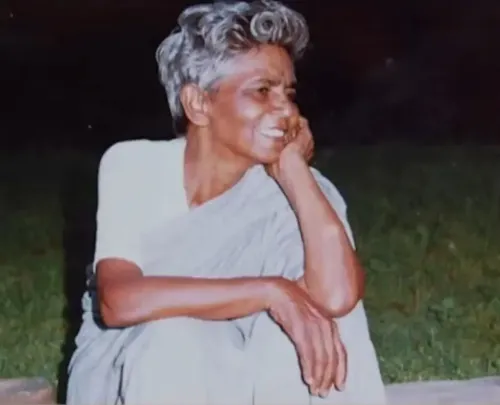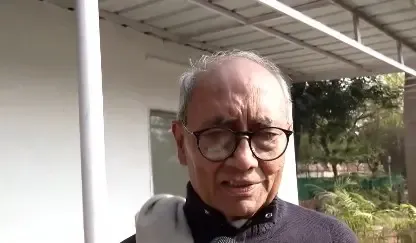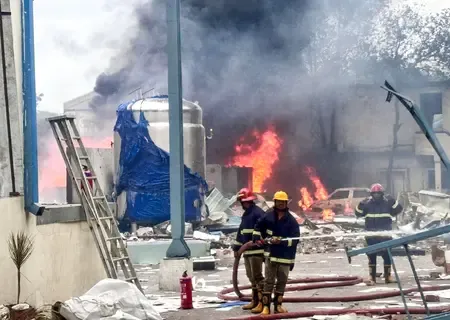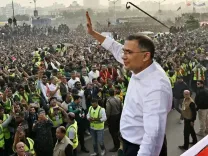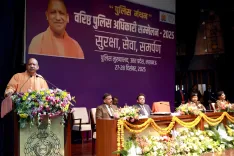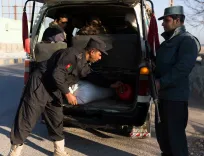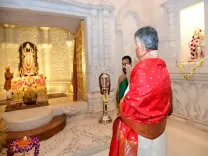Why is BJP Pressuring K'taka Government to Remove Christian Labels from Caste Census?
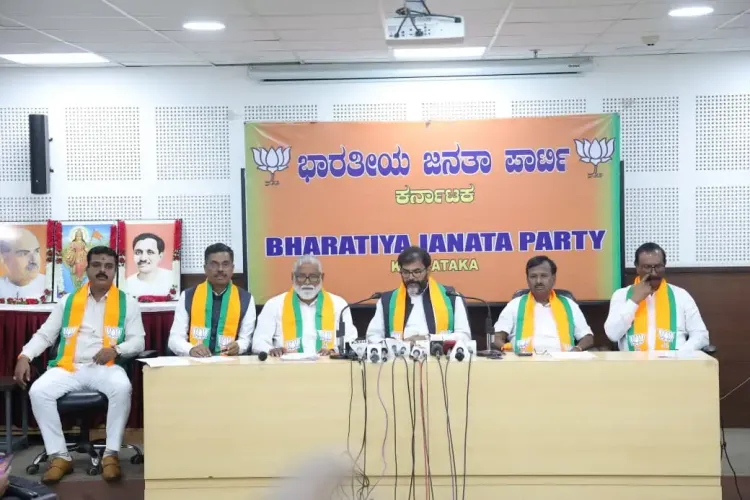
Synopsis
Key Takeaways
- BJP demands removal of Christian tags from caste census.
- Public protests indicate widespread dissent.
- Concerns raised about community harmony and governance.
- Massive spending on the census questioned by opposition parties.
- Implications for Karnataka's political landscape could be significant.
Bengaluru, Sep 22 (NationPress) Criticizing the caste census initiated by the Karnataka government on Monday as a sham, the BJP has called upon the state administration to eliminate Christian identifiers from Hindu castes.
At a press briefing held at the BJP state headquarters, Jagannath Bhavan in Bengaluru, the Leader of the Opposition in the Legislative Council, Chalavadi Narayanaswamy remarked on Monday, “Is the government aiming to endorse a specific religion? What prompted the inclusion of numerous categories such as Adi Andhra Christian, Adi Karnataka Christian, and Adi Dravida Christian in this census?”
He insisted that the Christian labels associated with caste titles should be excluded from the survey.
He criticized the state government for lacking the authority to conduct a caste census.
“You have labeled this as a socio-economic survey. However, in doing so, you have attached Christian identifiers to Scheduled Caste groups like Adi Andhra, Adi Karnataka, Adi Dravida, Banjara, Budaga Jangam, Holeya, and more. Is the purpose behind this to classify them all as Christians?” he questioned.
He denounced the Karnataka government’s survey as a farce.
“There is no need to inquire about someone's caste or religion in the survey; such details are unnecessary for official documentation. Still, appending labels like Kuruba Christian and Vokkaliga Christian is illegal. If this continues, caste disputes will persist indefinitely,” he cautioned.
“If the government’s goal is to ensure that no community in the state can coexist peacefully, then let the public assess what type of report this Backward Classes Commission will generate,” he commented.
“Was this survey conceived under Trump’s influence? Did Sonia Gandhi instruct you to do this? Did the general populace demand the inclusion of Christian tags?” Narayanaswamy asked sarcastically.
“Public protests have already erupted against this. Aside from the Chief Minister, the entire Congress cabinet stands opposed. The BJP leadership is against it. The JD(S) is against it. Religious leaders and community elders are all opposing you,” he noted.
He claimed that amidst widespread confusion, the government has proceeded with a caste survey via the Backward Classes Commission starting today. “This is not unprecedented. The Kantharaju Commission had already conducted a survey, which the government disregarded. What happened to that report? They claim it was lost—was it a treasure? This government has failed to even locate a missing report,” he mocked.
“The first commission cost approximately Rs 180 crore. Regarding the Jayaprakash Hegde Commission report, you remain silent on the expenses,” he stated. “Had the Kantharaju report been accepted, it would have honored public sentiments,” he contended.
“Now you are allocating Rs 425 crore yet again. Is this the Congress treasury? Are you sourcing the funds from your personal assets?” he questioned. “Who authorized you to misuse public funds without accountability?” he demanded.
“The state’s development is stagnant. You cannot address the grievances of the populace. You can't even repair potholes in urban areas. Industrialists are penning letters and tweeting about exiting the state. To distract people, you are creating confusion through this survey,” he charged.
“You assert that you will complete the survey of seven crore individuals within 15 days. By your own admission, the Scheduled Castes count 1.07 crore. For that segment, you had to delay the survey 3–4 times and took almost two-and-a-half months, yet you covered only 65 percent,” he remarked.
“If you now claim you can finish the entire state in just 15 days, it must be through satellite-based surveys,” he scoffed.
Former Union Minister A. Narayanaswamy, BJP state vice-president N. Mahesh, BJP state spokesperson H. Venkatesh Dodderi, retired IAS officer and BJP leader Anil Kumar, and state SC Morcha office secretary Prashant Kumar were in attendance.


